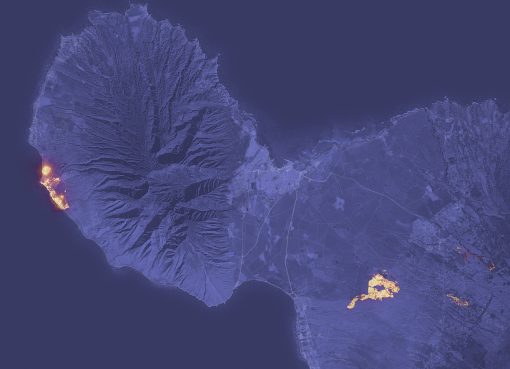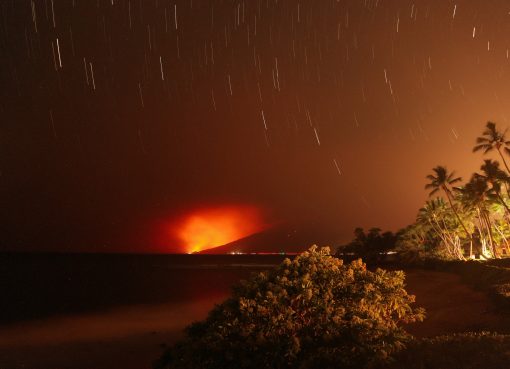How People React in an Emergency

The most contentious issue surrounding the Maui County/ MEMA communications on Aug. 8, during the Lahaina Fires, was the surprising absence of the outdoor sirens.
The State of Hawaii has the “largest single integrated outdoor siren warning system for public safety in the world,” solar-powered sirens enable them to sound even in cases like Aug. 8, when the power has been cut. (Outdoor Warning Siren Testing and Reporting, n.d.) Although each of the five sirens located in the Lahaina area was able to produce warning sounds of 121 decibels, they remained silent on Aug. 8. (Outdoor Warning Siren Testing and Reporting, n.d.) (“Hawaii’s Emergency Warning Sirens Were not Activated to Alert Residents, Agency Says,” 2023)
“They could have turned the tsunami sirens on so people knew to evacuate,” Bryan Sizemore, a commercial sport fisherman and mechanic engineer who lives in Lahaina, said. (“Hawaii’s Emergency Warning Sirens Weren’t Activated to Alert Residents, Agency Says,” 2023) “I feel like a lot of these fatalities could’ve been avoided with a warning,” said Ingrid Lynch, a Front Street resident who narrowly escaped the fire. (Jedra, 2023c)
At the time, MEMA explained why it did not use the siren. “It wouldn’t have helped if we had sounded the sirens,” MEMA administrator Herman Andaya told Civil Beat.
He further explained their rationale for not sounding the sirens. “We just followed what we normally do, which is we put out a WEA and EAS,” Andaya said. “If you check the other Hawaii jurisdictions throughout the state, none to my knowledge has used sirens for fires.”(Jedra, 2023a)
Adam Weintraub, the HI-EMA communications director, said the outdoor siren system was designed with the two main threats to the island in mind: hurricanes and tsunamis. However, the County’s website says sirens “can be used for a variety of both natural and human-caused events, including tsunamis, hurricanes, dam breaches, flooding, wildfires, volcanic eruptions, terrorist threats, hazardous material incidents, and more.” (“Hawaii’s Emergency Warning Sirens Weren’t Activated to Alert Residents, Agency Says,” 2023) (Outdoor Warning Siren Testing and Reporting, n.d.)
Amid criticism, Andaya explained further, “Had we sounded the siren that night, we were afraid that people would have gone mauka, and if that is the case, then they would have gone into the fire.”(Jedra, 2023a)
Leaders made a critical error during the COVID-19 crisis by assuming that the public would panic, leading to irrational behavior. However, disaster research consistently shows that the public rarely panics. When public anxieties do occur, it’s often because people don’t receive timely and accurate critical information or sensible behavioral guidance from authoritative sources. This underscores the importance of providing timely and accurate information to the public, empowering them to make informed decisions during emergencies.
Lessons Learned
1. Do not assume that people will panic or act irrationally in an emergency.
This is particularly the case when crafting emergency messages. If someone tries to edit your clear, concise, and fact-based communication because they are “afraid to start a panic,” remember that research shows that the public gets anxious when they do not receive accurate and critical information or guidance from authorities. By avoiding assumptions about public panic, you can craft clear, concise, and fact-based communications that reassure the public and instill confidence in your approach.
2. When responding to an emergency, get in the correct mindset.
Andaya’s explanation, ‘We just followed what we normally do’ (Jedra, 2023a), suggests a mindset of matching the type of hazard with a communication vehicle. However, in emergencies, a flexible mindset that allows you to see the novelty in the situation is crucial.
As a communicator sitting in the Emergency Operations Center in the initial moments of an incident, you need to be laser-focused on answering the following questions:
- Who is affected?
- What do they need to do, do differently, or know/ believe?
- How will they be told?
- Who or what entity has the credibility/standing/ access to tell them?
You might think of similar circumstances and how you solved them as you answer these questions. Nevertheless, let those come as an answer to these questions and not a preconditioned response of “Fires= WEA alert.”



